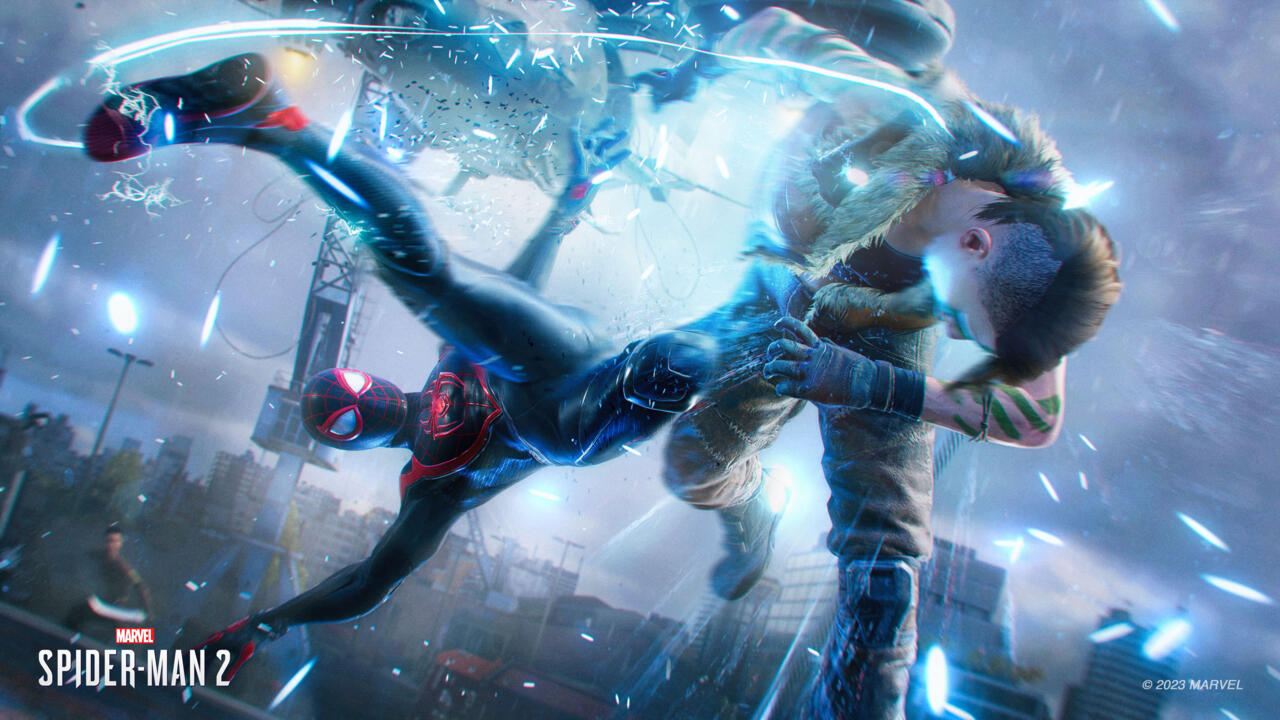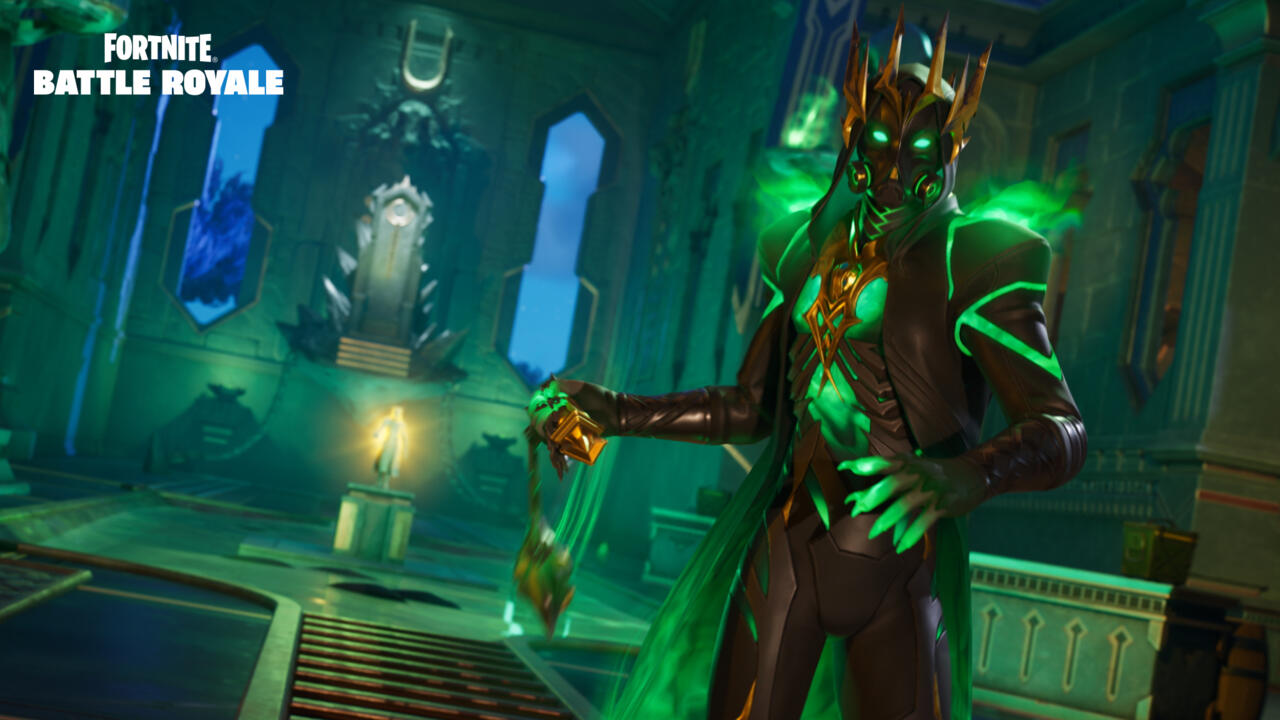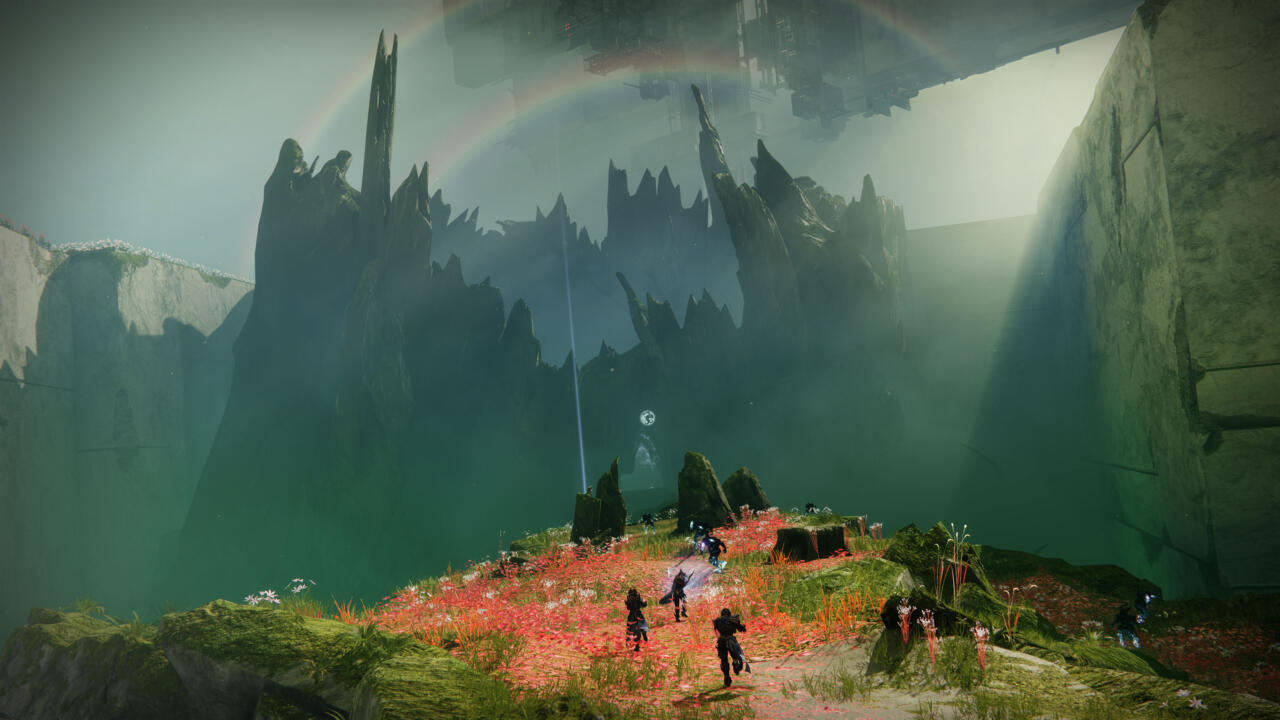On February 27, Sony announced it would lay off 900 people across its worldwide games business, affecting several games studios. Among them were Naughty Dog and Insomniac Games, both of which had just released big, noteworthy titles--Marvel's Spider-Man 2 launched in October to audience and critical acclaim, while The Last of Us Part II Remastered dropped in January with an updated version that included new content. The Sony layoffs constituted some 8% of the people working in its games division.
On February 28, Electronic Arts announced it would lay off 670 people--5% of its workforce. In a statement to staff, CEO Andrew Wilson said EA is "moving away from development of future licensed IP [intellectual property] that we do not believe will be successful in our changing industry." In EA's third-quarter earnings report released on January 30, Wilson was quoted as saying, "Our incredible teams delivered a strong Q3, entertaining hundreds of millions of people across our portfolio, driving deep engagement and record live services."
Sony and EA constitute only recent examples of an enormous, widespread convulsion of layoffs throughout the games industry that began in 2023. A startling number of developers and publishers have made major staff reductions, including Epic Games, the many studios owned by the Embracer Group and by Microsoft, Take-Two Interactive, Amazon, Bungie, CD Projekt Red, Ubisoft, Riot Games, and Unity. In just the first two months of 2024, the games industry saw at least 8,100 people laid off, according to a running tally of announcements kept by a developer at Riot Games.
So far, 2024 is shaping up to be even worse than 2023, which saw a record number of layoffs--although the exact figures are difficult to pin down. PC Gamer estimated that 11,250 people lost jobs in the games industry in 2023. It's perhaps easier to fathom the impact layoffs have had from another angle; in the Game Developers Conference's annual State of the Game Industry Survey, a third of the 3,000 respondents said they had been "impacted" by layoffs--whether they were among those who lost jobs, saw layoffs of colleagues, or worked at companies where layoffs took place. Half of respondents said they had some level of concern about future staff cuts: 14% said they were very concerned, 16% said they were somewhat concerned, and 26% said they were slightly concerned.

Layoffs certainly aren't unexpected in video games--at least, not when it comes to big games created by big studios for big publishers. Oftentimes, developers staff up to huge proportions when working on a major release, both with full-time staff and with contractors, and then retract after a game comes out and fewer staff are needed until the next project ramps up. And while this approach has made it difficult for people in the games industry to maintain stability in their careers, those staff reductions at least are unsurprising at this point.
However, the scope of the current situation is unprecedented, in both the number of people losing jobs and in the number of companies cutting staff.
For the people who play games, the situation is baffling because 2023 was a banner year for the industry with a huge number of acclaimed games seeing release. This would suggest, at least to players, that the games industry overall is doing well, and its success should be shared by the people who make its games. By and large, revenues continue to increase for the industry; games industry analysis company Newzoo estimated the market generated $184 billion in 2023, an increase of 0.6% over 2022. And apart from layoffs, many companies released seemingly healthy financial reports and made moves that didn't seem to telegraph trouble. Sony paid $3.6 billion to purchase Bungie in 2022; Microsoft's $70-billion acquisition of Activision Blizzard was finalized in 2023; and EA spent $325 million on stock buybacks in the third quarter of 2023, before its most recent layoffs, and $1.3 billion on buybacks over 12 months.
The recent heavy layoffs largely don't seem to come in service of keeping a company healthy, but are instead aimed at serving something else: the stock market.
"The same companies that are saying they're making record profits are also letting us know that they can't afford to keep us. Make this make sense."
The main measure of success in today's economy is not profitability but growth, and that is true in the games industry as well. Stock prices increase when companies report growth; rather than conveying a company in crisis, layoffs reliably correspond with a jump in stock price because firing people is seen not as a reduction in a company's ability to make money in the future, but as a reduction in overall costs. Tech industry commentator and EZPR CEO Ed Zitron refers to this as the "rot economy," a system that favors the appearance of growth over businesses being healthy and sustainable.
Gaming holding company Embracer, known for its ravenous acquisition of development studios over the last few years, is an illustrative example of the growth-obsessed, stock market-focused approach to business. Embracer's Q3 financial report plainly states the company's main goal is to appease the stock market. The report suggests Embracer may see more layoffs as it tries to sell some of the studios it acquired over the last few years. "Our overruling principle is to always maximize shareholder value in any given situation," the report reads.
"The way it's communicated from an operational standpoint from the organizational leaders of these companies is, they're saying it's an issue of needing to restructure and reorganize, it's an issue of finances," Autumn Mitchell, a quality assurance (QA) tester at ZeniMax and a union bargaining committee member of ZeniMax Workers United, told me. "I don't know, the same companies that are saying they're making record profits are also letting us know that they can't afford to keep us. Make this make sense."
"Reality Set In"
It's impossible to think about what's happening in the games industry today without the context of the COVID-19 pandemic. With so many people avoiding public places and events, the games industry saw an explosive increase in growth in 2020 and 2021. A 2022 report from PwC charts gaming's massive leaps: from $162.4 billion in revenue in 2019 to $196.9 billion in 2020 and $214.2 billion in 2021.
"In all entertainment, we saw just a mass spike in consumption, which required a lot of reaction as to, like, how are we going to maintain that, maintain services, grow?" Ben Kvalo, founder and CEO of publisher Midwest Games and former lead program manager of Netflix's games division, told me. "And then a lot of people just jumped at the opportunity, and obviously we saw the amount of investment that went into games during that period was massive. And each company was hiring at rates that were unprecedented as well."
The wild growth through the pandemic years caused an increase in venture capital money flowing into games. Venture capitalists typically make investments in companies in areas they see as having not necessarily sustained profitability, but a high potential for growth. That investment can be essential to a startup's ability to get off the ground in the first place or a company's continued existence, while the investors hope that risk will take off, allowing them to sell their stakes at high returns. The gaming industry's huge pandemic growth made it suddenly very interesting to investors looking for big wins.
"There was overstaffing during the pandemic on the expectation that the games industry growth during those years would continue forever, but reality set in and companies had to level set."
At the same time, low interest rates meant it was easy for investors to secure financing for those cash infusions, so money flowed relatively freely. Many companies used that capital and increased revenues from an influx of players to staff up and expand the scope of their projects or to add new games to their slates.
Eventually, though, with the release of COVID vaccines and the easing of various restrictions, gaming industry growth started to decline as people started playing less. Many games industry analysts and leaders have pointed to the effect of market changes due to COVID as being a major factor in the recent layoffs, although it is far from the only one.
Kvalo said part of what's been happening for the last year is the industry normalizing from that unprecedented period. Lisa Cosmas Hanson, president and CEO of analyst firm Niko Partners, echoed a similar sentiment.
"There was overstaffing during the pandemic on the expectation that the games industry growth during those years would continue forever, but reality set in and companies had to level set," Hanson said in an email.
Hanson also pointed to other factors that dovetailed with the reduction in growth and demand for games. One of those was a sudden increase in inflation, which hit a 40-year high midway through 2022. The Federal Reserve responded by increasing interest rates, which made it more expensive to borrow money. That drastically brought down investment in the games industry, since investors could get a guarantee of a high return off safer bets like Treasury bills.

Investment in the gaming industry plummeted. According to capital analysis firm Pitchbook, it fell from $14.6 billion in 2022 to just $4.1 billion in 2023. That was slightly higher than 2019's $3.8 billion, but a drastic difference from the highs of the pandemic, when investors had been enticed by increased revenues and the hype surrounding Web3 and metaverse technologies, the firm wrote in its report.
As Hanson mentioned, it seemed a lot of companies didn't expect the drop in revenue or investment money from the height of the pandemic, and instead operated as if that huge spike in growth would never end. The expectation that the games industry's growth would continue ballooning seems incredibly naive in hindsight, but was a fairly widespread belief at the time. Newzoo speculated in 2020 that the industry's global revenue would reach $217 billion by 2023, but the industry's 2023 revenue settled well below those marks, at $184 billion.
"The reality that we found post-[pandemic restrictions] is that, well, there was a lot of bad strategy during that period," Kvalo said. "There was a lot of reactionary behavior that wasn't long-term focused."
Falling short of growth projections established during the pandemic constitutes one part of the explanation for its current state. Developers and publishers had made major acquisitions and staffing increases on the expectation of continued growth, and they now had to reckon with the fallout--which, for many, meant layoffs, selling or shuttering studios, canceling games, and generally upending the lives of their staff.
Profitability Isn't Enough
Venture capitalist and analyst Matthew Ball wrote an expansive essay detailing his view of what is happening in the games industry. The piece runs some 16,000 words, covering the factors related to the pandemic, as well as a number of other elements affecting the industry.
One of the factors Ball points to is that gaming wasn't just impacted by a post-COVID bounce-back--revenues are down more than anyone expected.
"In the US, for example, gaming revenues are down 6.3% from 2021 (or $2.4 billion annually)," Ball told me in an email. "After inflation, the market has shrunk 15% (or roughly $9.6 billion). No one forecast this decline--and instead, many executives, companies, consultancies, banks, etc., expected considerable growth. The result is that [the] gaming industry is--quite literally--tens of billions smaller than expected. Meanwhile, costs have surged due to inflationary-adjustments, talent scarcity during the pandemic, competition with Big Tech, venture capital, and Chinese game studios, as well as much-needed reductions in crunch."
A major contributor to that drop in revenue is the fact that the same number of people are gaming for about the same amount of time they did in 2019. While other entertainment businesses have also seen a reduction in their business from the heights of the pandemic period, they're still ahead of where they were before the pandemic--but gaming is not, Ball said.
"The result is that [the] gaming industry is--quite literally--tens of billions smaller than expected."
"The revenue pullback is partly, but far from just, relating to COVID. In 2019, 73% of Americans played video games and they played for an average of 12.7 hours per week. By 2021, it was 76% and 16.5. By 2022, it was back down to 73% and 13 hours. Yet while most industries have experienced a COVID pullback, books are still up from 2020-2021, TV/Video is up, music is up, e-commerce is up. It’s gaming that is an outlier. We think of gaming as a super-high-growth industry, but it actually falls short of the average industry and country's rate of growth."
Overall, it's less that the gaming industry isn't profitable--it demonstrably still is--but that it isn't growing as much as companies, investors, and shareholders expected. As mentioned before, that puts pressure on those companies to seek more, however they may find it: gaining more players, extracting more money from existing players, or lowering costs through things like layoffs.
The industry is also at something of a crossroads. Hanson noted that a lot of companies have made bets they're still waiting on. A lot of investor interest during the early 2020s centered on bringing Web3 into gaming, for example. After the crash of cryptocurrency markets and NFTs in 2022, a lot of that interest has waned and those bets may never pay off. Companies are still waiting to see payoffs from cloud gaming, virtual reality, and augmented reality, as well, and new generative AI tech coming into games is still in its early phases.

And, as Ball put it, the games industry hasn't seen "substantial innovation" in business models, genres, or devices in years. Web3, VR, and cloud gaming "have yet to create more players, more playtime, or more spending," he said.
Kvalo took this idea a step further. The games industry is sort of between "eras," he said, and that's forcing companies to alter their strategies for the future.
"We think about the arcade era and then the console era, and then this digital era, where most things are consumed and bought digitally," he said. "We're also moving into this ultra-digital era of the cloud, that is going to be the next five to 15 years down the line, and I think a lot of companies are starting to prepare for and they're adjusting some strategies off of that, and rethinking about things during this time period as there's this large shift."
"Psychological Permission"
While the issues facing the games industry might explain why 2023 wasn't as strong a year as it appeared to be, they don't fully explain layoffs. After all, businesses have other ways of reducing costs and weathering tough periods than firing huge numbers of workers.
Cary Kwok, executive vice president and head of Gaming, Digital Entertainment, and Lifestyle Tech at public relations firm BerlinRosen, started working in PR for video games 20 years ago. She told me that, at that time, layoffs would have been seen as a corporate crisis. A communications professional like her would have been hired to help manage messaging, protect brand reputation, and avoid consumer backlash. Heavily cutting staff was viewed as a last resort with potentially dire consequences.
"Fast-forward to now, and I think there is some kind of normalization that's happening in our industry, unfortunately, where you're seeing in major companies, they're doing it," Kwok said. "And, you know, we're dealing with a very complex situation with the nature of our industry as well as the economics issues. When they're seeing every big player is doing it, you kind of feel like, 'Okay, well, if they're doing it, I probably should do it.' There's almost a herd mentality going on to a certain extent, and I think it kind of gives every company in the industry almost a psychological permission, if you will."
Many companies in the games industry already move through hiring-and-firing cycles with each new game made, Kwok said. Add some economic instability to that equation, and it can make the situation a lot worse.
"There's almost a herd mentality going on to a certain extent, and I think it kind of gives every company in the industry almost a psychological permission, if you will."
Kvalo also thought that part of the reason we're seeing so many layoffs is that, while some companies need to make cuts to respond to situations in which they're struggling, others can use the current situation for cover, avoiding backlash and sustained negative PR from their own cuts as more layoffs come down the line. It's tough to tell who is legitimately hurting and who's taking advantage of the moment, he said.
Some companies might be facing a quarterly earnings report that needs a boost when facing shareholders, Kwok said, and layoffs are a way of cutting costs to paint a rosier picture for them. And shareholder perception and pressure is a real issue, as well--seeing others cutting their costs can lead to investors pressing company leaders on why they're not making similar moves to stay competitive.
"I think there's something to be said about tech industries normalizing this type of behavior and normalizing, 'Oh yeah, let's just lay people off,' rather than exploring every possible alternative before you just uproot people's lives," Mitchell said. "And I think it's an ethical question, and I think that's part of the reason why we're seeing so many people ready to just get organized in their labor. It's one reason among many reasons."
To Mitchell, the current climate also represents an opportunity for companies to use layoffs for any number of goals, from reorganizing with minimal pushback, to moving out higher-cost employees in order to replace them with lower-cost ones, or pushing out employees who are resistant to return-to-office policies.
"As far as why we're seeing this stuff is concerned, I think any reason you can come up with is a reason why companies are laying people off," she said.
Consequences of Games-as-a-Service
The games industry has always been driven by hits, but with the rise of the games-as-a-service model, the biggest hits can stick around for much longer. That has created a situation where measuring the growth or revenue of the whole industry can tell a partial story, because a large amount of that money goes to only a few games. That's another element of what's affecting the games industry now, Ball told me.
"Alongside [the other factors] is an ever-increasing struggle for new games to break out," Ball said in an email. "There are incredible financial successes--Helldivers 2, Palworld--but the list of unsuccessful, canceled, and bombs is frighteningly long. This had led many publishers to reassess their development pipelines and incubation projects, often canceling games outright or significantly reducing their budgets. This leads to talented developers without a budget to work against, and at a time where other titles at their parent company are being pared back too. Underpinning this challenge is the fact that the largest games--Fortnite, Roblox, Call of Duty, [Grand Theft Auto V], PUBG, FIFA--continue to grow and strengthen, leaving little space for others."

In his essay, Ball called this effect an "ossification" of the industry: a tendency for it to harden around the biggest, most entrenched games. Those games put consumers into walled gardens owned by certain companies, and the more time and money they spend there, the tougher it is for them to leave and play something new. Every dollar you spend in Fortnite, for instance, is a dollar that's not going to another game in the industry--but it's also a dollar that pressures you to keep playing Fortnite. The game also gains from your presence, because if you're invested in Fortnite, it's more likely your friends will join you, get invested, and build reasons to keep playing. That enhances the player community within the game, drawing in more people who are likely to get invested and stick around, too.
Ball pointed to the mobile shooter genre as an example, where 70% of revenue goes to the top three games, and games that have been around for two years or more take up 94% of revenue. Clearly, new games are struggling to break through the domination of older, more entrenched titles.
And with venture capital investing diminishing, smaller studios are finding it even tougher to get the money they need to make games and stay independent.
"...it's harder for the smaller studios and the indie studios to survive, so they have two choices: Try to make it happen or get bought."
"Part of the reason why we're seeing a lot of [mergers and acquisitions] in the gaming industry, too, is that the bigger you get, you kind of continue to get bigger and bigger," Kwok said. "When the industry becomes more dominated by key players, it's harder for the smaller studios and the indie studios to survive, so they have two choices: Try to make it happen or get bought."a
The same period that saw a huge amount of additional investment in the games industry also saw a huge amount of consolidation. Kvalo said he thought that consolidation was also a big factor in the current state of the industry. About $3.5 billion was spent on mergers and acquisitions in games in 2019, he said, while that number had exploded to $122 billion in 2022. Apart from changing the overall landscape of the industry, one company purchasing another almost always leads to staff cuts as new leadership eliminates redundant positions and makes other changes.
Short-Term "Fixes," Long-Term Damage
Layoffs might help companies accomplish their goals or spruce up their books for quarterly reports, but they won't help the industry in the long term, Ball said. Layoffs won't address the reduction in growth or change what it costs to make games, and having fewer people on a studio's staff won't help make more games to sell to players.
"There is some hope that revenue challenges will force publishers to really address cost growth, which has outstripped revenue growth for years in PC/console games and is partly separate from developer compensation, but rising costs and declining margins are also a natural outcome of low-to-no-growth categories as each participant works to gain share or attention," Ball told me. "We need more players, playtime, and spending. Layoffs and fewer new games are unlikely to achieve this."
Still, Ball reiterated the way he ended his essay, that he's optimistic about the games industry long-term.
"All of the long-term trends are in gaming's favor," Ball said. "But most industries experience periodic hiccups and sometimes they can last a while. I don't say that to make light of the situation--there is an utterly awful number of lives and families affected by this downturn, and some talented developers will forever exit the industry as a result, and some great games will never be finished--but the industry's current ails will eventually pass."
While the layoffs might not always create consequences for companies in terms of bad PR or a fall in stock prices, they are hurting the industry as well as the people who are forced out of their jobs. Tougher-to-quantify effects, like decreased morale among those who keep their jobs when others lose them, or in gaming communities, are nonetheless likely changing the future of the industry in the short and long terms.
Destiny 2 developer Bungie cut 8% of its staff in October, including employees with ties to the Destiny community and who had been with the company for years. After its acquisition of the studio in 2022, Sony might be demanding higher margins from Bungie and other studios, leading to Bungie making cuts to ensure that in the short-term, but that may have also ensured Destiny 2's longer-term prospects have a much lower ceiling than it otherwise might.

Some Destiny players reported on forums such as Reddit that they were canceling their preorders for Destiny 2's next expansion, The Final Shape, following the layoffs. Well-known content creators in the space commented on the devastating effect the layoffs had on the community's morale, and on Steam, Destiny 2 player counts in November were the lowest they had been in the game's six-year history. While it is difficult to point only to the layoffs as a cause--Destiny 2 historically loses players during slower periods between expansions, had lost players because of critical and consumer panning of the game's previous expansion, and was up against a remarkably impressive release schedule of other games vying for attention--it's difficult to deny that the layoffs had at least some negative effect on Destiny 2's group of committed, long-time fans.
Many who were fired throughout the industry have years of experience at their studios, meaning those companies aren't just dropping storied developers, but sacrificing institutional knowledge, as well. Kwok said that with upwards of 16,000 games industry workers losing their jobs in 2023 and the first two months of 2024, it's very likely the industry is losing a lot of that talent. There simply aren't that many jobs waiting for people to fill them, which means some workers will have to look outside the industry and might never return.
She said she thinks industry leaders recognize that mass layoffs can't be a long-term solution, but they're contending with more immediate problems.
"I think every decision-maker knows what they're trying to do here is to fix the immediate problem that is in front of them for each company," Kwok said. "But I do believe that all these decision-makers in our industry also know that cutting people as the first response to economic problems, or just overall financial issues that we're dealing with, cannot be a long-term strategy because in order for the industry to continue to thrive, which will benefit all kinds of companies, we have to really invest in the people."
And of course, the greatest toll is on those losing their jobs, and it may not be easy for many to recover. Mitchell said that the job market in games and tech has changed significantly even in the last five years, often making it very difficult to find a job after losing one. She said she has spoken with people who are still looking nine months after being cut from their previous positions. Some games workers are taking jobs in the service or retail industries because of the difficulties in finding something new in their field.
"A lot of tech workers, game workers, are told or taught--actually conditioned, I would say--that, 'Hey, if you're a programmer, engineer, whatever, you're very independent. You can go anywhere, you can do anything,'" she said. "More and more I think people are learning that it's not that easy."
In January, Microsoft laid off around 9% of its gaming unit--around 1,900 employees. Mitchell wrote in a piece for Polygon that she believed the fact that ZeniMax QA workers had unionized contributed to the fact that none of them were affected through two rounds of layoffs.
"...we're risking everything when there are some things we don't have to risk as much."
The games industry saw an unprecedented rise in unionization during the toughest years of the COVID pandemic. The layoffs of 2023 and 2024 may well contribute further to that trend: 57% of respondents to GDC's State of the Game Industry survey said they thought the industry should unionize, with 5% of respondents already part of a union.
Kvalo said that while there's a temptation to look for simple answers as to how the industry got here, he thinks the more important thing is for the industry to think about what it can learn to avoid a similar situation in the future.
"One of the challenges I see is just that people want to make [the layoff situation] simple," he said. "They want to point and say 'evil company,' or they want to point and say 'COVID,' or they want to point and say a lot of things, but the reality is it's a lot of factors and it has led to a negative space. But what it should be doing for us is leading toward, well, how do we not get in this place again? How do we think about things differently? How do we think about things more sustainably? How do we move from an industry that's considered hit-driven to an industry that can be sustainable when we're operating at the right cost levels per game and we don't just overly invest and overly risk? No matter what, we're in a creative space, it's a risky space, but we're risking everything when there are some things we don't have to risk as much. And so I think sustainability is going to be a major conversation coming out of this."
The all-important infinite growth valued by investors isn't achievable by everyone, setting up the industry to reevaluate how large swaths of it can continue to operate without being beholden to demand for an arrow that always points up and to the right. As Kvalo put it, "How do we not just be a hit-driven business and actually get to a place where we can have sustainability where sustainability should be?"

